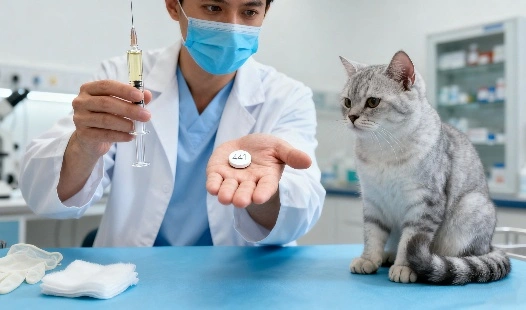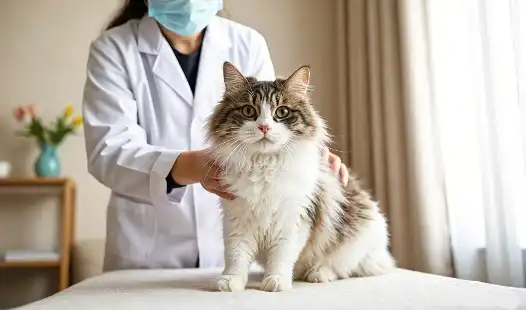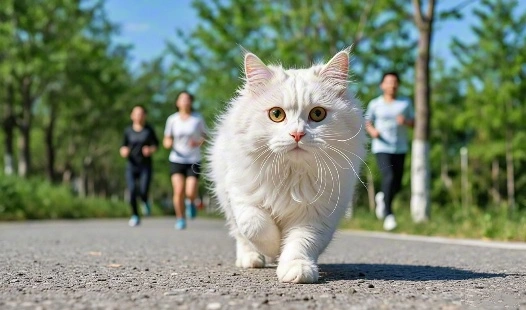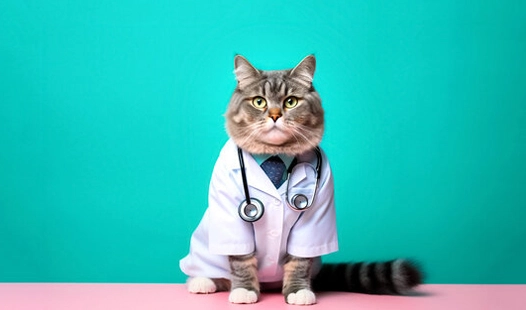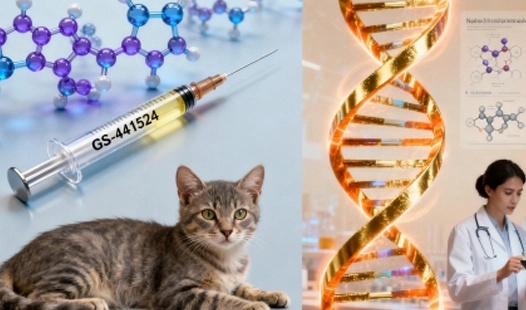Can a cat be cured from FIP?
Breakthrough treatments for FIP
For a long time, feline infectious peritonitis (FIP) was thought to be fatal. New developments in veterinary care, however, have given both cat owners and doctors reason to be optimistic. Read on to learn about the most recent advancements in GS-441524 FIP Cure, which might lead to a cure and what it implies for felines that are impacted.
|
|
|
Breakthrough treatments for FIP
The landscape of FIP treatment has undergone a significant transformation in recent years, with novel therapies showing remarkable promise in combating this once-fatal disease.
The rise of antiviral therapies
At the forefront of FIP treatment is the use of antiviral drugs, particularly the GS-441524 drug. This nucleoside analog has shown impressive results in clinical trials and real-world applications, offering a glimmer of hope for cats diagnosed with FIP.
How GS-441524 works?
GS-441524 functions by inhibiting viral replication, effectively halting the progression of the FIP-causing coronavirus. By interfering with the virus's ability to reproduce, this drug gives the cat's immune system a fighting chance to overcome the infection.
Administration and treatment protocols
The GS-441524 drug is typically administered through subcutaneous injections over a period of 12 weeks. The dosage and duration may vary depending on the severity of the disease and the individual cat's response to treatment.
Success rates of FIP therapies
|
|
|
The efficacy of new FIP treatments has been a subject of intense interest in the veterinary community. Let's delve into the numbers and what they mean for affected cats.
Clinical trial results
Studies involving GS-441524 have reported success rates upwards of 80% in treating FIP, a figure that was unthinkable just a few years ago. These results have been consistent across various forms of FIP, including the wet, dry, and neurological variants.
Real-world outcomes
While clinical trials offer controlled environments, real-world applications have also shown promising results. Many veterinarians and cat owners have reported successful treatments, with cats making full recoveries from what was once considered an invariably fatal disease.
Factors influencing treatment success
Several factors can impact the success of FIP Cure, including:
- Early diagnosis and intervention
- Consistency in administering the medication
- The cat's overall health and immune status
- The specific strain of the FIP-causing coronavirus
Long-term prognosis for treated cats
Understanding the long-term outlook for cats treated for FIP is crucial for owners considering this treatment option.
Post-treatment monitoring
After completing the initial FIP treatment course, cats require careful and ongoing monitoring to ensure the disease does not return. This typically involves scheduled veterinary check-ups, routine blood tests, and close observation of the cat's behavior, appetite, and general health at home. Consistent monitoring helps detect early signs of potential complications or relapse, allowing for timely intervention and increasing the likelihood of sustained remission and overall well-being for the cat.
Relapse rates and management
Although the majority of treated cats remain FIP-free after completing their treatment, a small percentage may experience a relapse. In such cases, veterinarians often recommend a second round of therapy, sometimes with a slightly higher dosage or extended duration to enhance effectiveness. Early detection and prompt management of relapse are critical, as they help maximize treatment success and ensure that cats regain full health while minimizing the risk of further complications.
Quality of life post-treatment
Cats that have undergone successful FIP treatment often return to a normal, healthy, and active life. Many enjoy years of good health without any lingering effects from the disease. Owners frequently report improvements in energy levels, appetite, and behavior, demonstrating that modern treatment protocols can not only save lives but also restore a high quality of life. This highlights the significant progress made in veterinary medicine for managing FIP effectively over the long term.
 |
 |
 |
 |
Conclusion
The question "Can a cat be cured from FIP?" can now be answered with cautious optimism. While we may not yet have a guaranteed cure for every case, the advancements in treatment options, particularly with the GS-441524 drug, have transformed FIP from a death sentence to a manageable condition with a high chance of recovery.
As research continues and more data becomes available, the outlook for cats diagnosed with FIP continues to improve. It's a new era in feline medicine, one that offers hope and a fighting chance for cats affected by this once-devastating disease.
FAQ
1. How long does FIP treatment typically last?
The standard treatment protocol with GS-441524 typically lasts 12 weeks, with daily injections. However, some cases may require extended treatment periods based on the cat's response and the severity of the disease.
2. Are there any side effects associated with FIP treatments?
While GS-441524 is generally well-tolerated, some cats may experience mild side effects such as discomfort at the injection site or temporary changes in appetite. Serious side effects are rare but should be promptly reported to a veterinarian.
3. Can FIP recur after successful treatment?
While recurrence is possible, it's relatively uncommon in cats that have undergone a full course of treatment and shown complete resolution of symptoms. Regular follow-ups and monitoring are essential to catch and address any potential relapses early.
Vet-Recommended GS-441524
We at BLOOM TECH are dedicated to making strides in the battle against feline infectious diseases (FIPs) and other difficult illnesses. Veterinarians and researchers may rely on our high-quality GS-441524 powder in their hunt for the FIP Cure. You may have faith in the reliability and effectiveness of our goods because of our rigorous quality control procedures and commitment to purity.
Do you work as a veterinarian and want to provide comfort to people whose cats have been diagnosed with FIP? Perhaps you're an innovator in the field of feline medicine who's always looking to push the envelope. Our top-notch GS-441524 formulas are here to back up your endeavours, and we take pride in being a reliable GS-441524 manufacturer.
Don't let FIP win. Reach out to us today at Sales@bloomtechz.com to learn more about how our products can make a difference in your practice or research. Together, we can turn the tide against FIP and give more cats a chance at a healthy, happy life.
References
1. Pedersen, N.C. et al. (2019). Efficacy and safety of the nucleoside analog GS-441524 for treatment of cats with naturally occurring feline infectious peritonitis. Journal of Feline Medicine and Surgery, 21(4), 271-281.
2. Addie, D.D. (2020). Feline Infectious Peritonitis: Progress in Treatment and Prevention. Veterinary Clinics of North America: Small Animal Practice, 50(5), 1147-1170.
3. Murphy, B.G. et al. (2018). The nucleoside analog GS-441524 strongly inhibits feline infectious peritonitis (FIP) virus in tissue culture and experimental cat infection studies. Veterinary Microbiology, 219, 226-233.
4. Dickinson, P.J. et al. (2020). Antiviral treatment using the adenosine nucleoside analogue GS-441524 in cats with clinically diagnosed neurological feline infectious peritonitis. Journal of Veterinary Internal Medicine, 34(3), 1587-1593.

Echo
9 years of experience in chemical articles; Doctoral degree; Organic Chemistry major; R&D-4 Dept; Technology support; R&D engineer
Anticipating your Business & Technology support inquiry
Please send us the products that interest you, and we will provide you with one-on-one service
Recommended Blog
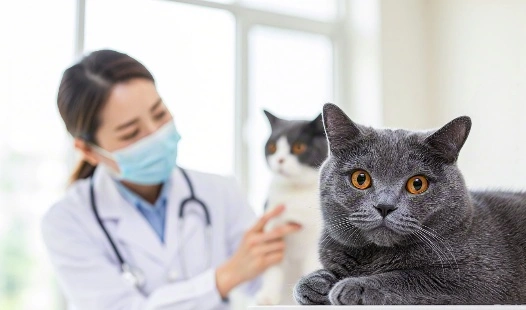
How to Choose a GS-441524 Brand and Supplier: 5 Key Factors to Consider
_副本_1757905577235.webp)
The Molecular Mechanism of GS-441524: How It Fights Coronavirus
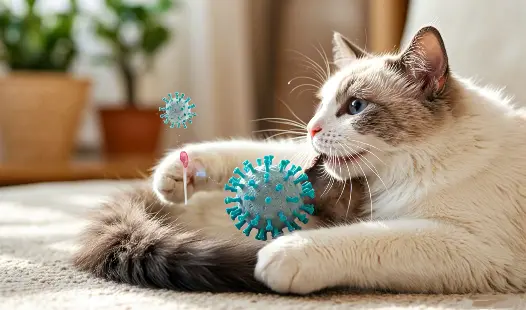
GS-441524 Demystified: A Complete Guide to Its Mechanism, Efficacy, and Safety
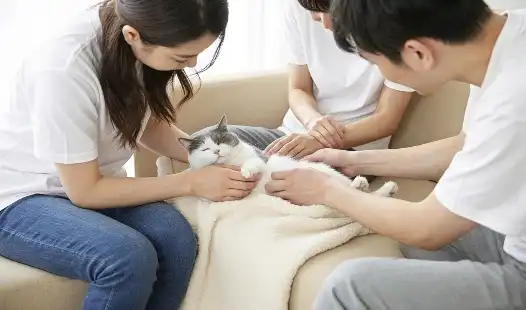
The Most Important Nursing Care Tips for Cats on GS-441524






